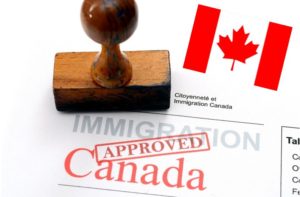Agri-Food Immigration Pilot

Agri-Food Immigration Pilot
Every year Canada invites thousands of agricultural workers from abroad in order to ensure that Canadians have access to fresh and affordable produce. For years, there has been a strong demand for agricultural workers in meat processing, mushroom, greenhouse production, fishing, and livestock-raising industries. These workers came to Canada to perform seasonal labour and had very little access to all the benefits that other work permit holders have in Canada, including the right to apply for permanent residence. It didn’t matter, whether the worker was visiting Canada for the first time or if they participated in the program for a decade – they would only stay in Canada temporarily, and they would often have to endure inadequate working conditions due to the fact that they could not change employers without losing their chances of returning to the country.
So finally, Immigration, Refugee and Citizenship Canada decided to help such worker and offer the option of them applying for permanent residence under a pilot immigration program.
It is called the Agri-Food Pilot, and the applications are currently open for eligible individuals to apply.
A pilot program means that the Canadian government launched this program as a trial, and they will either make it permanent or introduce further improvements after 3 years.
Although the applications for Agri-Food industry Immigration Pilot just opened in May 2020, and are being accepted until May 2023, the Canadian Government are planning to admit a limited number of 2,750 applicants and their families for the duration of the pilot.
In order to immigrate to Canada under the new Agri-Food Immigration pilot Program, one has to meet the Agri-food Immigration Pilot requirements. Those include eligible Canadian work experience, language, education, a job offer, and having enough funds to settle in Canada.

Agri-Food Immigration Pilot
Eligible Canadian work experience means that the worker worked in one of the occupations listed on the government website. Their work had to be full-time, non-seasonal, and they had to have accumulated one year, or 1,560 hours, of such work experience within the 3 years preceding the day they submit their application. If you’re not sure what is considered non-seasonal work, check the IRCC glossary of terms. The work experience also had to be obtained through the Temporary Foreign Worker Program. So, if you changed to an open work permit before you accumulated 1,560 hours of experience, you may not be eligible to apply. You also cannot count any volunteer or illegal work towards the eligibility requirements.
As for the job offer, it has to be full-time, non-seasonal, permanent, and the wage has to match the median wage for this occupation in your province of employment or be determined by the union. It also has to be in an eligible occupation listed on the government website, and it has to be outside of the province of Quebec. If you are planning to move to Quebec, make sure you check Quebec’s provincial website, since this program does not apply to the province of Quebec.
The next Agri-Food Immigration Pilot program in Canada eligibility requirement is that your English or French language score has to be CLB Level 4 in each of the linguistic competencies, which include reading, writing, speaking, and listening. Check the Canada government website to find out if you have the necessary score and what tests you need to be taking. As for the education requirements, you must a high school diploma, and you will need to apply for an educational credential assessment (ECA) report to show that your education is recognized in Canada.
Finally, unless you are already working in Canada with a valid work permit, you will need to show that you have enough money to support yourself and your family members. You can calculate the amount of money you need by looking at this table. Make sure you count yourself, your spouse or common law partner, and your children under 22.
All in all, if you think you qualify for Canada Agri-Food Immigration Pilot, you can complete the application package and pay the processing fees. Make sure you read the instruction guide and don’t hesitate to seek assistance from a lawyer, a legal clinic, or a registered Canadian immigration consultant. Submitting a complete application without any errors can help you avoid delays and make sure your dream of Canadian permanent residence can become reality.
Regards,
International Experience Club

